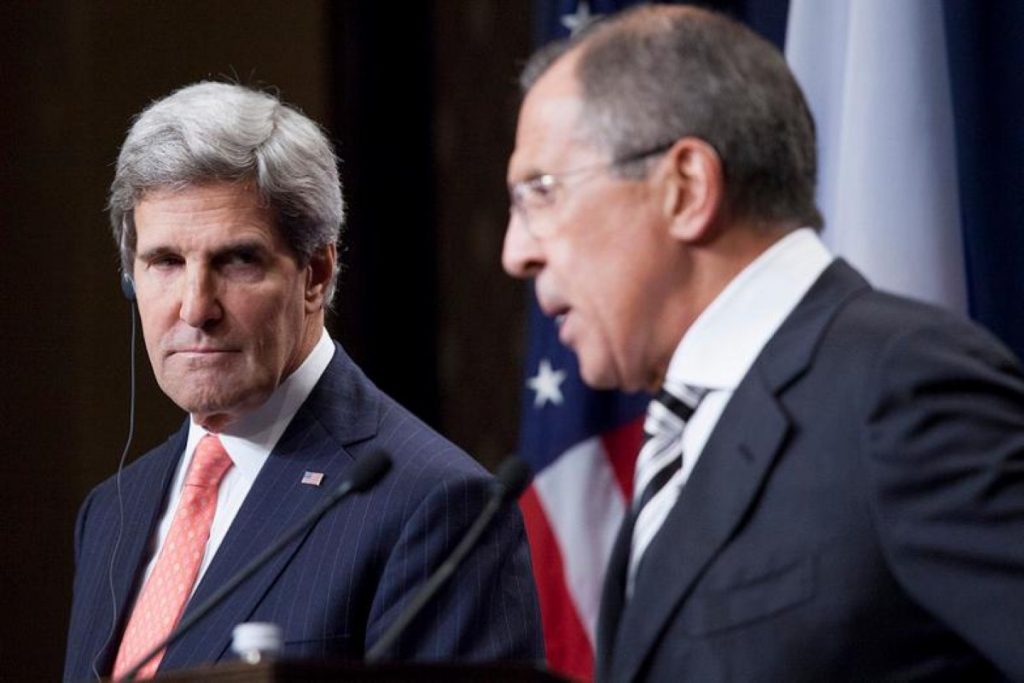Syria: Hague ‘hopes’ Russians can be trusted
Britain will watch Russia's approach to the fledgling Syrian chemical weapons deal "very carefully" in the coming days, William Hague has warned.
The foreign secretary acknowledged Bashar al-Assad's regime could not be trusted as Russia and the United States move to implement their weekend agreement on Syria's chemical weapons at the United Nations security council.
He suggested the Russians, who until recently rejected suggestions that Assad was using chemical weapons, would have to prove their own trustworthiness.
"Russia has been very anxious to deal with this matter, to come to an agreement with the US," Hague told the Today programme.


"Russia will have a great deal riding on this working. It's now very important Russia brings its full weight to bear… at the moment we have no reason to believe they won't, but we have to watch this very carefully over the coming days."
Hague ruled out the use of British soldiers being deployed to Syria to ensure security for any UK experts sent in as part of an international group to destroy the country's chemical weapons.
"We won't be deploying boots on the ground in Syria," he added.
"I don't think that would be a good way to provide security, given that might provoke strong feelings in Syria."
Yesterday saw the United Nations team report that it had found "clear and convincing evidence" that sarin gas was used in the Ghouta area of Damascus.
It said surface-to-air rockets had been used, confirming the incident was the worst use of weapons of mass destruction in the 21st century and the most serious chemical weapons incident since Saddam Hussein's attack on the Halabja region of Iraq.
One warhead found by the UN team contained capacity for 56 litres of sarin, far more than had previously been feared.
UN secretary-general Ban Ki-moon declared the August 21st attack was a "war crime".
He said: "The international community has a responsibility to hold the perpetrators accountable and to ensure that chemical weapons never re-emerge as an instrument of warfare."
The Organisation for the Prohibition of Chemical Weapons must first endorse the US-Russia agreement made in Geneva at the weekend before a UN security council resolution takes place.
Assad could still face a military attack endorsed by Russia, Hague insisted.
He explained: "What Russia agreed to with the US is that if there was non-compliance by the Assad regime with the requirement to declare, give up and destroy their chemical weapons, then there could be agreement in a Chapter VII resolution… in those circumstances, force is still available."
Ordinary Syrians continue to face intense suffering as another period of heavy fighting continues to rage.
The World Health Organisation has said 40% of Syria's hospitals have now been destroyed. Medical professionals and treatment centres face ongoing attack.
Shadow foreign secretary Douglas Alexander yesterday underlined the ongoing incidents of murder, rape, kidnapping and torture committed by both regime and rebel forces.
"No one should be in any doubt as to the brutality and barbarism of the perpetrators of these crimes," he said.












